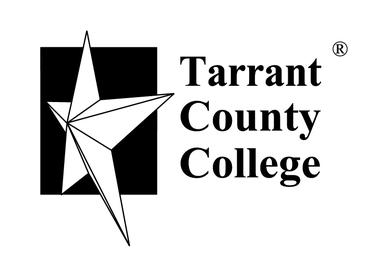Identity of Speakers
-
Clayton Smith
Student
OtherClayton Smith was a student at Tarrant County College and member of Students for Concealed Carry on Campus.
-
John Schwertz Jr.
Student
OtherJohn Schwertz Jr. was a student at Tarrant County College and member of Students for Concealed Carry on Campus.
-
Dr. Erma Hadley
Faculty/Staff
OtherDr. Erma Hadley was the Chancellor at Tarrant County College
Additional Information
-
Incident Nature:
Other student-organized event
Organized outside group action
-
Incident Political Orientation:
Right-of-spectrum -
Incident Responses:
Litigation
-
Incident Status:
Held unconstitutional
- No protest Occured
- Was Speech Code incident
Summary
In 2009, Clayton Smith and John Schwertz Jr. were students at Tarrant County College, a community college located in Fort Worth, Texas. Both students were members of “Students for Concealed Carry on Campus” (SCCC), a national group formed after the Virginia Tech shooting that advocated for schools to adopt policies that would allow licensed students to carry concealed weapons on college campuses. SCCC groups around the country engage in “empty holster protests,” in which members wear empty holsters on their persons in order to symbolize the fact they are unarmed and potentially vulnerable to violence. In April 2009, Smith attempted to organize an empty-holster protest in which he and other members of the SCCC would wear empty holsters and tee-shirts, and hand out leaflets to other students advocating the group’s position. Smith emailed college officials to make them aware of the planned protest. Magdalena de la Teja, the vice president for student development, and Paula Vastine, the director of student development services, responded that SCCC would not be allowed to wear empty holsters on campus or hand-out leaflets to other students. They additionally stated that in order to conduct any protests on campus the SCCC would need to submit a request to reserve the school’s “free speech zone” 24 hours before the planned protest. Smith abandoned his plan to host the event.
In October 2009, SCCC announced a plan to hold “empty-holster” protests on college campuses around the country. This time, Smith and Schwertz emailed Tarrant County College’s chancellor, Dr. Erma Hadley, and notified her that they planned to participate in the national protest. They additionally asked whether or not the College’s policies had changed since April 2009. Dr. Hadley responded that the college had “specific requirements for those who wish to protest on campus,” requirements which Smith and Schwertz believed would prevent them from participating in the national event.
On November 3, 2009, Smith and Schwertz filed a § 1983 action against Tarrant County College and Dr. Hadley, alleging that the College’s speech policies were unconstitutional both facially and as-applied. Smith and Schwertz filed a motion for a temporary restraining order to allow them to participate in the planned protest and to wear empty holsters in the classroom. The United States District Court, Northern Texas, Fort Worth, granted the motion in part, finding that the school’s free speech zone and permit system were impermissible prior restraints on the Plaintiffs’ First Amendment rights as the restricted access to a public forum. However, the court denied Smith and Schwertz’s request for a temporary restraining order that would allow them to wear empty-holsters in classrooms, as the classrooms were not a public forum.
Tarrant County College and Dr. Hadley filed a motion to dismiss the complaint, arguing that the Plaintiffs lacked standing to pursue a claim against the college as they had never submitted an application to use the free speech zone. Additionally, the college revised its speech policies and eliminated the permit and free-speech zones, but maintained a part of the policy that prohibited students from engaging in speech activities that were sponsored by outside organizations.. Smith and Schwertz filed an amended complaint alleging that the revised policies continued to infringe upon their First Amendment rights and that the policies were adopted in a manner that was contrary to Texas State Law. The District Court, Northern Texas, Fort Worth, granted Plaintiffs’ request for declaratory relief in-part and denied it in-part. The court held that the College’s policy that prohibited Smith and Schwertz from carrying empty holsters in a classroom or in public violated their First Amendment rights. The court additionally held that a University policy that prevented students from engaging in speech activities that were sponsored by outside organizations was overly broad and thus unconstitutional. The court further held that Smith and Schwertz lacked standing to challenge University policies that restricted the speech of non-students and guests, and that the doctrine of Constitutional avoidance prevented the court from considering whether the college had altered its handbook in contravention of state law.

